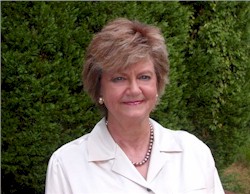|
|
|||||
|
Be Neutral |
|||||
|
Case Watch: For Mediators The following case analyses are part of a regular series we publish to help neutrals broaden their knowledge of rulings of Georgia’s appellate courts that may affect your practice. Remember: mediators should not give legal advice or opinions Review of Salmon-Davis v. Davis, 286 Ga. 456, (2010), appeal to the Georgia Supreme Court of a ruling by Judge George Perry Hutchinson, pro hac vice, Gwinnett County Superior Court. “She/He is moving out of state and taking my children!” Nothing is more frightening to devoted divorced parents than the possibility of having their children move thousands of miles away. Relocation among divorced parents, however, is increasingly common in American life, and many of their custody disputes are being filed through the courts. Davis and its included case, Bodne, examine some considerations you as a mediator might discuss with the parties any time there is the possibility that a custodial parent will relocate. Bodne v. Bodne, 277 Ga. 445, 446 (2003), changed domestic law regarding custody cases. Prior to Bodne, the custodial parent had a prima facie right – that is, the presumed right – to retain custody of the children even if the custodial parent relocated, unless the noncustodial parent was able to prove a material change in circumstances affecting the children’s welfare if they relocated with the custodial parent. After Bodne, now in all relocation cases as well as in all child custody cases, the trial court must determine what weight should be given to a custodial parent’s plans to relocate. According to the Georgia Supreme Court, the trial court: (i) must determine the best interests of the child; and (ii) cannot apply a bright line test, i.e., the rebuttable presumption that the custodial parent has a prima facie right to retain custody. Not only did the Bodne decision reverse a long line of cases relating to relocation of a custodial parent, but it also reverses all other Georgia case law that presumes that the custodial parent has a prima facie right to retain custody. When divorced parents have been awarded joint physical custody, in a subsequent modification action both have an EQUAL right to retain physical custody of the children. In Davis, the father was initially living in Colorado, although he later returned to Georgia. Upon the recommendation of the guardian ad litem, the Court granted the Colorado father primary physical custody of the children. The parents were ordered to share equally the cost of transporting the children for their visitation. The mother appealed and insisted that the Davis court did not follow Bodne – that it failed to consider the impact on the children of an out-of-state move. The Georgia Supreme Court ruled as follows: “An initial custodial award will not always control after any new and material change in circumstances that affect the child is considered. The primary consideration of the trial court in deciding custody matters must be directed to the best interests of the child involved, that all other rights are secondary, and that any determination of the best interests of the child must be made on a case-by-case basis. This analysis forbids the presumption that a relocating custodial parent will always lose custody and, conversely, forbids any presumption in favor or relocation.” The Supreme Court, in unanimously affirming the decision of the Davis trial court, also found that the court gave due consideration to the effects of relocation and the best interests of the children. Both parties were ordered to share equally in the costs of transportation for the children. The parties’ income was approximately the same, and the Davis court did not order a deduction from the mother’s child support funds for this expense. This provision also was upheld by the Supreme Court. In light of Bodne and Davis, here are some of the reality checks mediators may consider discussing with parties who are considering relocating: – Age and emotional health of children; – Length of time between parents’ visits; – Possible harm to children by being denied regular contact with both parents; – Historic role of the noncustodial parent and siblings in the children’s lives; – Children’s achievements in school; – Children’s friendships through extracurricular activities and neighborhood; – Reasons for relocation (i.e. is move to accommodate the interest of the custodial parent); – Stress, safety and complexity of available travel options for the children; – Burdens of sharing of transportation costs or of requiring relocating parent to pay entire cost for travel; and – Effect of relocation on the general quality of life for the children. The majority opinion in Davis simply stated that the trial court shall exercise its discretion using the best interests of the child analysis. This gives the individual trial judge broad discretion, and the judge may very well be persuaded to prevent the relocation of the children. The best argument against the move would arise if the parents had equal parenting time with their children, as in Bodne. Mediators are reminded of this provision in Georgia’s legally required parenting plan: “J. Communications Provisions. Each parent shall promptly notify the other parent of a change of address, phone number or cell phone number. A parent changing residence must give at least 30 days notice of the change and provide the full address of the new residence.” Remember that the trial court retains jurisdiction in all custody cases for the purpose of ordering the custodial parent to notify the court of any changes in the residence of the child.
Lastly, mediators should
avoid any self-executing custody change provision upon a move or other
condition that allows children to be automatically wrestled from the
custodial home without the benefit of judicial determination. Scott v.
Scott, 276 Ga. 372.
|
|||||

